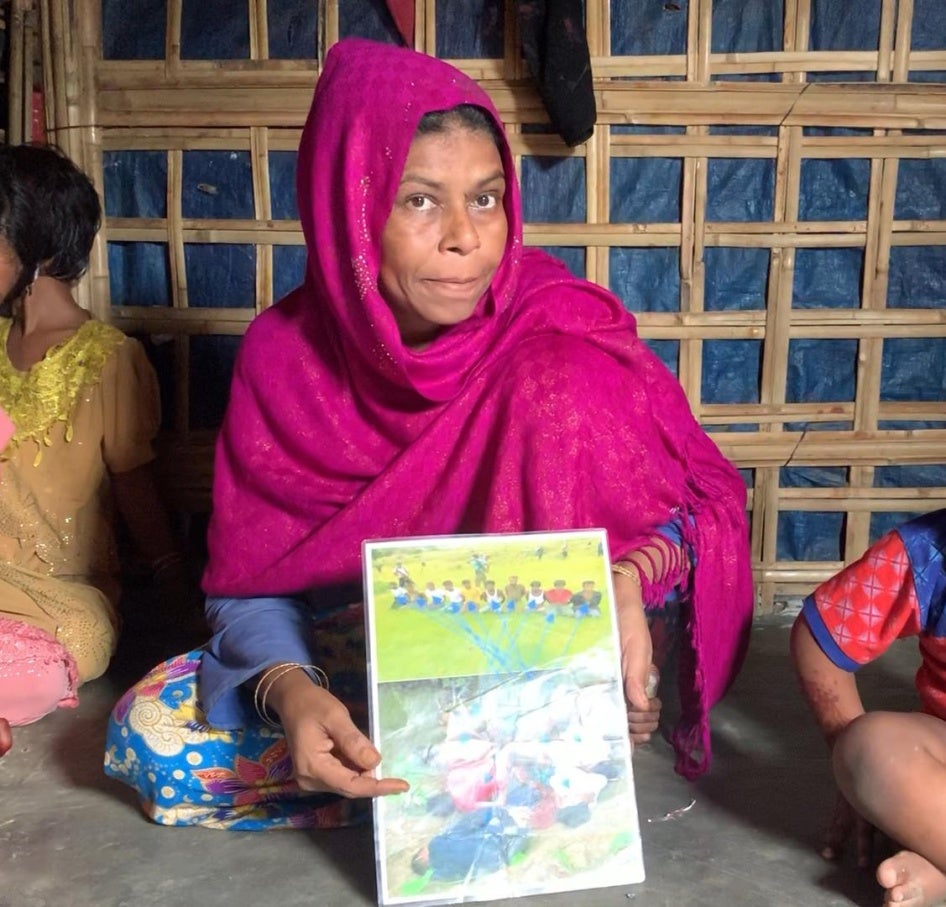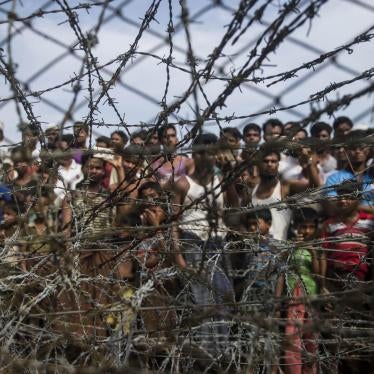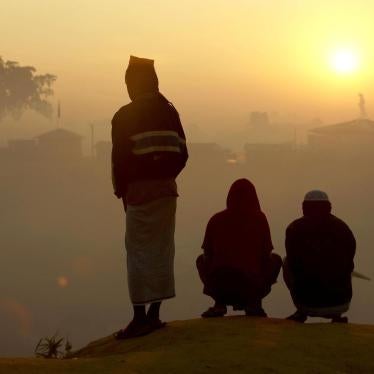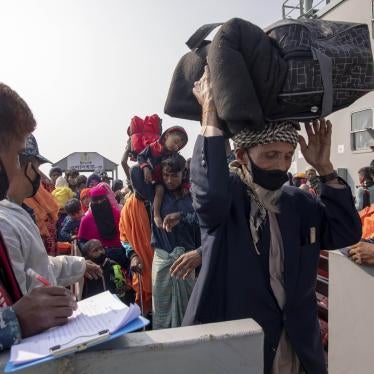Rahama Khatun’s husband, Shaker Ahmed, has been dead for two years. He was massacred alongside nine other ethnic Rohingya men in the village of Inn Din, in northern Rakhine State, by Myanmar security officers and local Buddhist villagers.
Soldiers arrived in their town on August 27, 2017, in the midst of the military’s brutal campaign of ethnic cleansing that would ultimately send 740,000 Rohingya fleeing across the border. They burned homes and emptied the village. Rohingya fled, seeking refuge nearby before attempting the trek to Bangladesh. On September 1, Rahama’s husband was picked up with the nine others; they were shot and hacked to death the next day.
“My husband was killed. He’s not here beside me anymore,” Rahama said, sitting among three of her children in the refugee settlement in Bangladesh where she has been living for two years. “He is the person with whom I spent my whole life, the father of my children. After losing him, I’m feeling very bad. I feel empty.”
She fled Inn Din with their eight children, ages 1 to 18. Seven months pregnant, she scrambled through the muddy jungle and flooded creeks for days. Her sons carried her when she could no longer walk. “If I also die, what will happen to my kids,” she said.
In November 2017, in the sprawling, overcrowded Kutupalong camp, she gave birth to her ninth child, a boy, Sadikur Rahman. “My youngest son was suffering from fever and his older brother, who is also a child, was comforting him saying: ‘You are suffering from fever. Nothing will happen. Baba [dad] will come soon and you will be cured,’” Rahama said. “This little child doesn’t know when his father will come.”
The nearly one million Rohingya Muslims in Bangladesh are trapped in anguished limbo, living in teeming camps in a foreign country, unable to return home at the risk of detention or death. “Living as refugees in another’s country, no one cares about us,” Rahama said. “If we go back to our country, they will kill us again.”
In late August, the Myanmar and Bangladesh governments attempted to start sending Rohingya families back. But refugees say they are unwilling to return without guarantees of safety, citizenship, and freedom. Myanmar has not eased the oppressive and brutal conditions the Rohingya fled.
“We don’t want to go back to Myanmar where so many of our loved ones did not even get a funeral, and ended up in mass graves after they were killed,” a Rohingya man said. Inside Myanmar, camps surrounded by barbed wire and military outposts awaited them. They sit empty. No Rohingya from Myanmar’s approved list of 3,450 chose to return. “If we will get our rights,” said another, “we are ready to live there under the open sky.”
Seven soldiers who were convicted for their role in the Inn Din massacre were pardoned by Myanmar’s commander-in-chief, Sr. Gen. Min Aung Hlaing, after serving just seven months of their 10-year prison sentences. Their short-lived terms remain the government’s sole admission of military wrongdoing. The case was just the most egregious demonstration of the government’s unwillingness to punish crimes by its security forces. And yet, at the same time, two Reuters journalists who exposed the massacre spent 17 months in prison for doing so.
Two years on, Rahama and the other Rohingya survivors are still awaiting justice. “We complained to the world and also to our Almighty and still no one is able to bring those people who did this to justice,” she said. “Maybe there is no chance.”
“I want justice for them killing my innocent husband.” Rahama took out a laminated sheet of two photos that Reuters collected from a villager in Inn Din—one of her husband and the other nine men kneeling in a row surrounded by paramilitary officers, their hands strung together behind their backs. Below it, a photo taken shortly after, their bodies lying bloodied in a shallow pit. They are the only photos she has of her husband; everything else was burned.
“I want to see the place where my husband was killed, where his blood fell into that soil,” she said. “That’s his graveyard. If some time I’m able to go back to my country, I want to go to that place to offer some prayers.”









